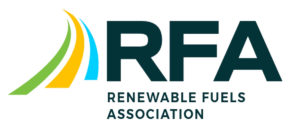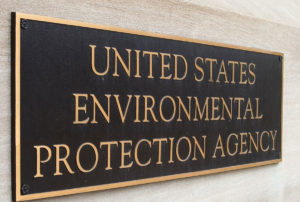 Environmental Protection Agency (EPA) Administrator Andrew Wheeler has confirmed that the agency will delay action on dozens of outstanding Small Refinery Exemption petitions until after the Supreme Court rules on an appeal from refining companies over EPA’s waiver policy.
Environmental Protection Agency (EPA) Administrator Andrew Wheeler has confirmed that the agency will delay action on dozens of outstanding Small Refinery Exemption petitions until after the Supreme Court rules on an appeal from refining companies over EPA’s waiver policy.
That means it would be December 14 before EPA would decide on whether to approve or reject the pending waiver requests. The high court is considering whether to hear the case brought by three small refiners in September and the EPA says it needs more time to provide a full government response to the petition.
Renewable Fuels Association President and CEO Geoff Cooper says they were surprised to hear of EPA’s decision on the appeal. “EPA decided not to get involved in earlier efforts for a rehearing of that properly decided opinion, so it’s unclear why EPA would want to weigh in now. If EPA decides to take a position on the request for further judicial review, we hope it’s to convey such review is unnecessary and falls far short of the established standards for Supreme Court’s involvement.”
Cooper says EPA can and should adopt the Tenth Circuit decision nationwide and immediately reject the 17 remaining ‘gap year’ waiver petitions and apply the decision to the 35 pending requests for 2019 and 2020 compliance exemptions. “It’s time to quiet the waters of the RFS program. Enough is enough.”


 Mary Kay Thatcher, Senior Manager of Federal Government and Industry Relations for Syngenta, provided her perspective on the “churn of the election” during the company’s media summit this week. She does expect the presidential outcome to drag on for a while, but during her presentation, Thatcher used the assumption of a Biden presidency for her outlook.
Mary Kay Thatcher, Senior Manager of Federal Government and Industry Relations for Syngenta, provided her perspective on the “churn of the election” during the company’s media summit this week. She does expect the presidential outcome to drag on for a while, but during her presentation, Thatcher used the assumption of a Biden presidency for her outlook.  The
The  In September, Colorado released a public comment draft of its
In September, Colorado released a public comment draft of its  In
In  The
The  The
The  The
The  The
The 
 Ethanol stakeholder organizations submitted comments to the Environmental Protection Agency this week regarding the
Ethanol stakeholder organizations submitted comments to the Environmental Protection Agency this week regarding the